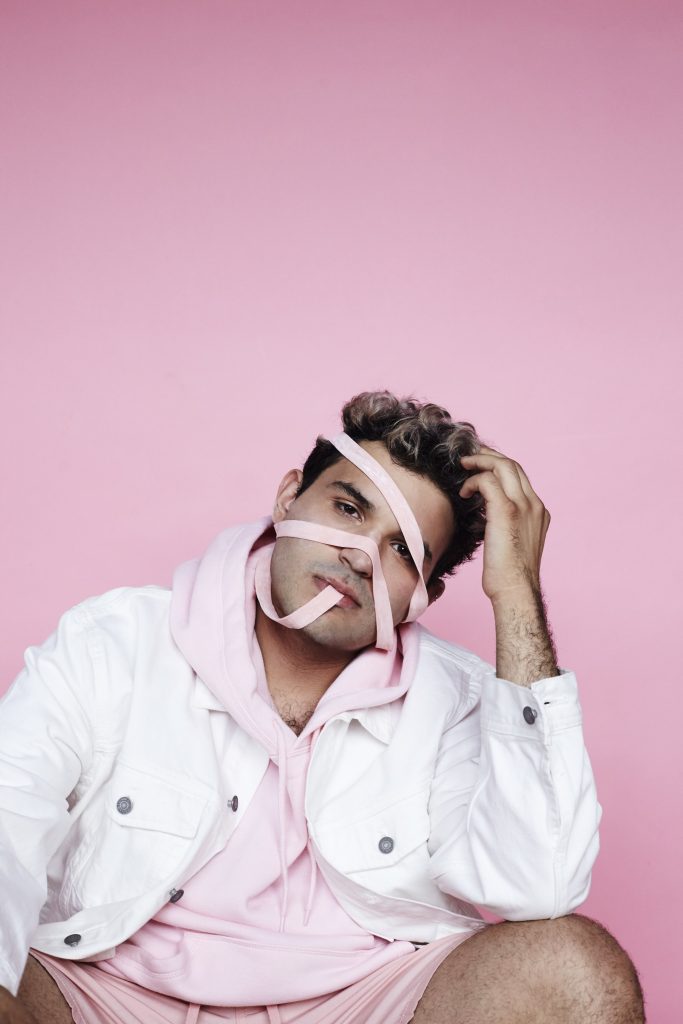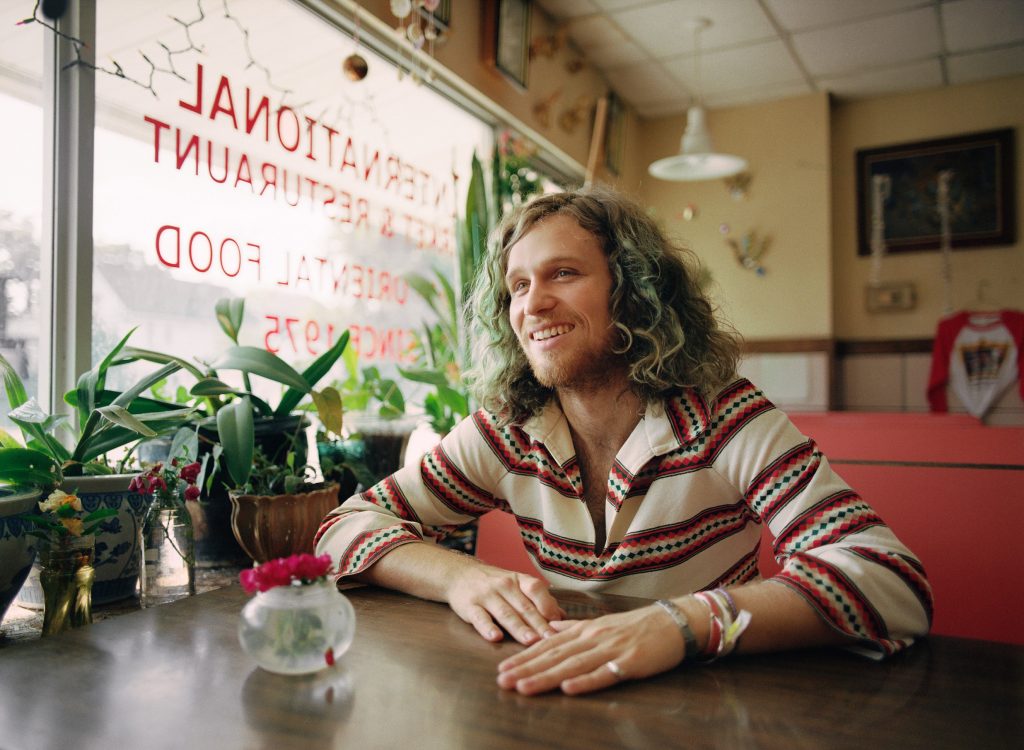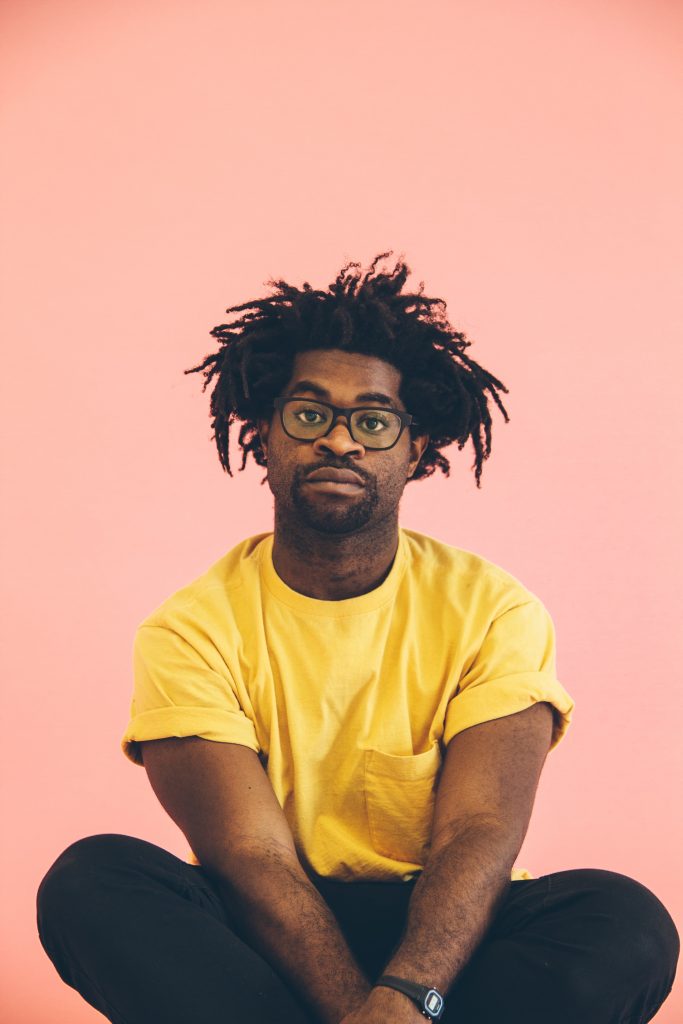
Over the bizarro crooning of Lil Uzi Vert’s “XO TOUR Llif3,” Reggie Williams—a generally affable R&B artist better known as R.LUM.R—sighs. It’s the day before Easter, and we’re holed up at the new Fort Houston space shooting the photos for this article.
“This is a little depressing, isn’t it?” he asks, studio lights flashing and low-hanging fog circling his Adidas. Maybe he’s talking about the shoot. Or the interview. Or being someone who has to do shoots and interviews. Maybe the fog and lights are simply making everything a little moodier in here.
“‘All my friends are dead / Push me to the edge?’” he says, quoting Uzi. “I mean, damn!”
I skip to the next track on the playlist—“Mask Off” by Future, even more depressing in a sort of Byronic way—before settling on Frank Ocean, who Williams regularly covers during his shows. It’s not much better in the depression department, but Williams is already singing along: “Glory from above / Regard me dear / It’s all downhill from here.”
By this point, I’ve spent roughly four hours with R.LUM.R over the course of the past week, so I’m used to the singing. Frank Ocean, Fleet Foxes, Ray LaMontagne, Joni Mitchell, Staind (yes, the “It’s Been Awhile” band, more on that later)—it’s all fair game. Normally, someone sporadically bursting into song drives me—and I believe this is the technical term here—up the damn wall. But with Williams, it can be funny, endearing, and even calming, like the voice of a soft-spoken relative or an old friend you haven’t seen in awhile.
Perhaps this is because Williams can sing. You don’t use words like recognizable, unique, or distinct when describing his voice. You can (because it is all of those things), but those words are too often reserved for singers that sound like cartoon characters. R.LUM.R sings the same way Prince, Otis Redding, and Freddie Mercury did—with a supernatural ability that convinces you this is what he was put on earth to do. As George Jones, who’s in the club I just mentioned, would say: “You know this old world is full of singers / But just a few are chosen / To tear your heart out when they sing.” R.LUM.R sings like that.
He can also write clever, catchy songs, play classical guitar, compose and program tracks on Ableton, and sight-read his ass off. But it’s that voice—the effortless falsetto, the restrained anger hiding behind crisp delivery, the triumphant bursts of energy during the choruses—that initially made me (and nine hundred thousand monthly Spotify listeners) pay attention.
Much has been made of that Spotify account, where R.LUM.R’s lead single, “Frustrated,” has racked up more than thirteen million streams. In fact, while researching for this article, I couldn’t find a single piece of press that didn’t mention the streaming service. In these write-ups and videos, one narrative continually emerges: R.LUM.R has gained millions of streams on Spotify in less than two years, so why doesn’t anyone know who he is?
It’s a fair point (and clickable headline), but it’s also a little shortsighted. Yes, a lot of people have listened to him in a very short time. And yes, his Spotify numbers exceed other local artists who are bonafide national superstars (e.g. Jason Isbell). But Williams isn’t some Internet enigma enjoying dumb luck because of a Disclosure-y single and coveted playlist placements. He’s a complicated, versatile artist who’s worked years to get here.
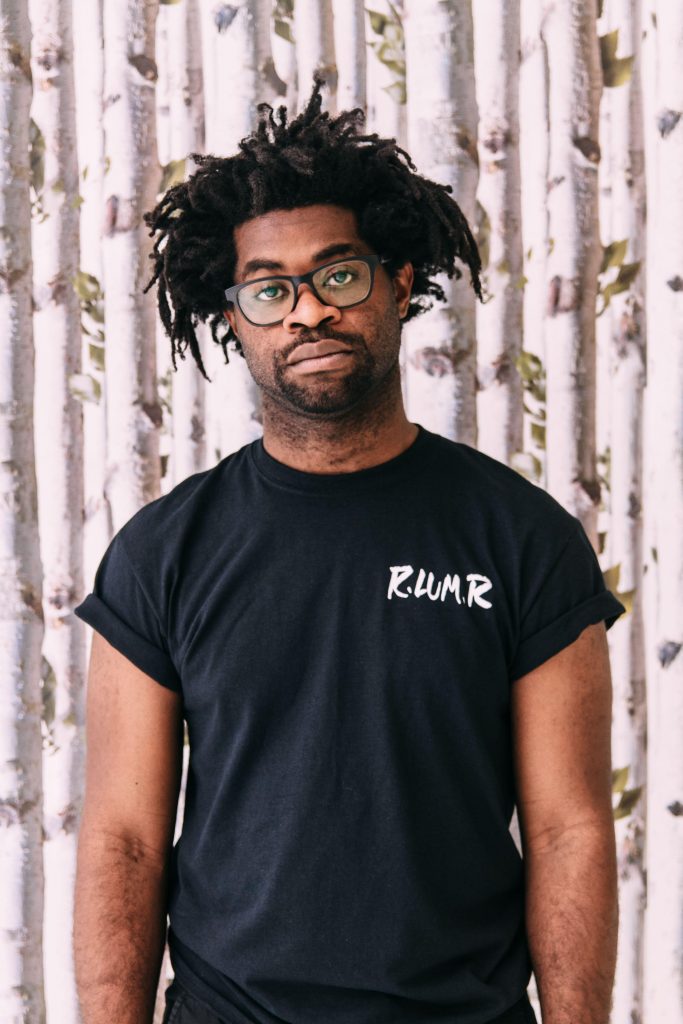
“You grow up thinking that the John Mayers and [artists] of the world are endowed with this gift, and they live on Mount Olympus and us plebeians are here to be given their ambrosia,” Williams says, affecting a faux regal accent that falls somewhere between Judi Dench and Cruella de Vil. “But you’re never told about all the work and training and sacrifice that goes on the back end to create that persona and create that ability.”
Today’s work and training: readying a new lighting rig for a set at Mercy Lounge next week. We’re in a Donelson garage, but thanks to the series of LED-lined mirrors, it feels more like the Millennium Falcon mid-hyperdrive. Lighting designer Jonathon Kingsbury (who shot the photos for this piece) meticulously syncs the lights to R.LUM.R’s set, while Williams occasionally gives feedback and says things like, “Motherfuckers are going to lose their minds!”
That may be true, but Williams also realizes that, much like the Spotify streams and his new video for “Frustrated,” the lights are only one part of the equation.
“I’ll say what I need to say through my work,” he asserts, the lights reflecting off his glasses. “I know that’s the longer, more difficult path. But I’ve never been known to take the easiest path.”

Williams was born and raised in Bradenton, Florida, a coastal town outside of Sarasota that’s home to Champs Sports and Tropicana Orange Juice. His father was a Gulf War veteran with anger issues and a drinking problem, and his mom—in Williams’ words—“did her best . . . She’s just an imperfect human who tried, but it didn’t really work well.” They divorced when Williams was five, and it marked the beginning of a rough childhood.
“I’ve been in therapy and counseling literally as long as I can remember, my entire life,” the twenty-seven-year-old says. “Like, since age five or six, because that’s when all these outbursts and freakouts started happening—probably about me feeling alienated because my father wasn’t there.” Though Williams doesn’t remember the outbursts, he’s heard the stories. There was the time he threw a desk at a teacher, and another when he dislodged a fellow student’s retina after throwing a pencil at his eye.
The freakouts subsided as he got older, but the difficulties didn’t. His childhood was marred by custody battles, threats of being sent to live with his father (who had a new family by that point—“He chose them over us,” Williams later says), and more violence. He tells me one particularly harrowing story in which he was called out of elementary school because of an emergency at his paternal grandmother’s house. Once he arrived at the house, he realized that his father, who was drunk at the time, had punched Williams’ grandmother in the face.
“[I remember] being there stunned,” he says, “with my grandma crying with this big welt on her face.”
"I’ll say what I need to say through my work. I know that’s the longer, more difficult path. But I’ve never been known to take the easiest path."
Like countless others before him, Williams made sense of his surroundings through music. He’d always loved stuff like Sade, Sarah Vaughan, Anita Baker, and Bill Evans growing up, but he didn’t realize there was anything else until he was a teenager. His introduction to rock and hip-hop was . . . unorthodox.
“The first musical group I can remember hearing that wasn’t soul, blues, R&B, or jazz—which is all we were allowed to listen to growing up, because my mother didn’t like anything else—was Linkin Park,” he explains, laughing. “Hearing Linkin Park that first time for me was like, Yo, there’s different types of music out there.”
The anger, alienation, and angst of Chester Bennington and co. understandably struck a nerve with the troubled middle schooler, who, in addition to his problems at home, was struggling to find his identity.
“There’s that Earl Sweatshirt lyric: ‘Too white for the black kids, too black for the whites.’ I was that kid,” he remembers. “I was the kid in middle school that listened to Linkin Park and wanted to play Yu-Gi-Oh . . . I wanted to wear the tight jeans and shop at Hot Topic, but my hair wouldn’t swoosh, so I couldn’t be that, ya know?”
Linkin Park would serve as the gateway into other hard rock like Circa Survive, Coheed and Cambria, The Mars Volta, and yes, even Staind. “People laugh about [it] . . . But that record, Break the Cycle, was so emo but so important to me . . . I just remember laying in my bed as a fourteen-year-old, tears in my eyes, just like, ‘This guy fucking gets me, man!’”
Unlike his friends in the Sarasota hardcore scene—one of which was Chris Martignago, his current manager—Williams couldn’t afford an electric guitar or drums. So at fourteen, he bought a $250 Yamaha CG101 acoustic with some money he’d earned at a “hella illegal” busboy job. The acoustic led to a deep appreciation of singer-songwriters like John Mayer, and it wasn’t long before Williams was “writing songs about girls that didn’t like me.”
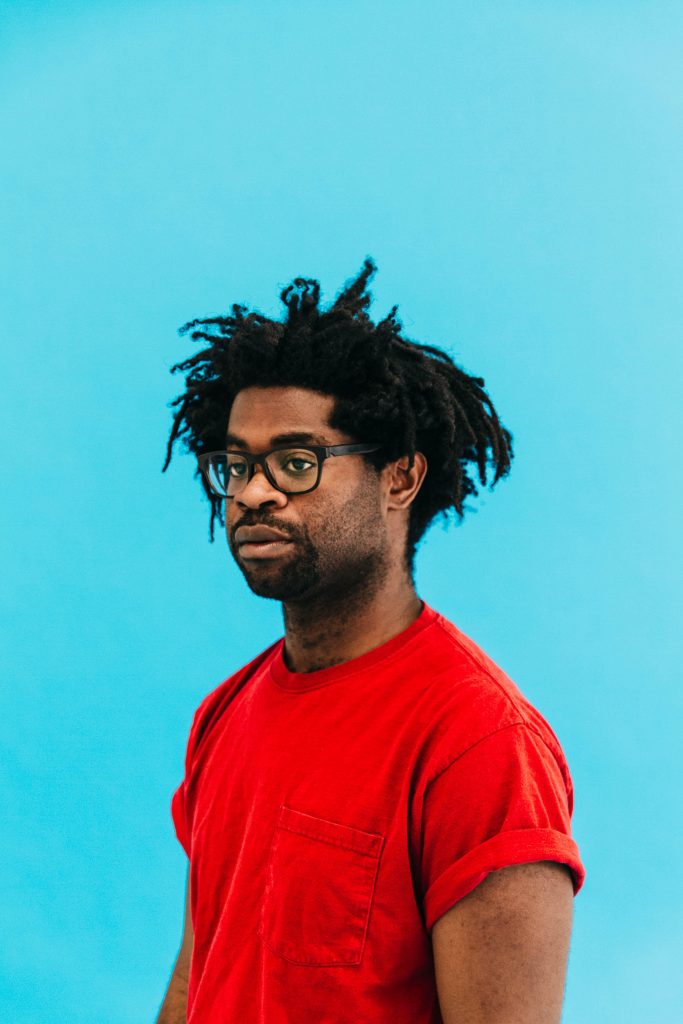
Roughly a year later, that Yamaha was one of the few things—along with a backpack full of clothes and some school supplies—that Williams took with him when he moved out of his mom’s house following an argument about stolen money. Or maybe it was a cell phone. Or the volume of his guitar. There were so many fights, he says, that it’s hard to pinpoint what this one was even about.
Williams would spend the rest of high school living with friend and Manatee School of the Arts classmate Mikey Mejia. His relationship with buddies like Mejia and Martignago inspired the idea of framily: a portmanteau, mind-set, and hashtag that R.LUM.R frequently mentions on social media.
“Your friends become the new family for you—because that’s literally how it happened for me. Mikey was like my brother, his mother was like my mother,” he says. “Your friends are the family you choose. That’s where that framily thing comes from, and that’s why it’s so important to me. That’s why I want to extend it to [my] audience.”
After studying classical guitar and music theory at Manatee, Williams enrolled at Florida State with a classical guitar scholarship and plans to go into musical therapy. Getting better at guitar and learning the ins and outs of Pro Tools was great, but like many music students, Williams eventually decided that the best way to play music for a living was—well, to play music for a living.
He dropped out in 2013 and moved to Orlando, where he crashed on Martignago’s couch and played the local bar scene. The four-hour sets were radio-friendly affairs that wouldn’t be out of place on Broadway or Division, and they served as trial-by-fire lessons in performing.
“If you can get the dude that is only concerned about the NCAA game on the LCD screen above your head to pay attention to you . . . then you’ve kind of got something,” he says, starting to chuckle. “And if you suck, that tip jar will be very empty, and you’ll be very hungry. And that’ll give you a lot of time to wonder Why? Why am I so poor? Why do people hate what I do?”
He didn’t have to wonder for long. In 2015, Martignago relocated to Nashville to work in A&R at Atlantic, and Williams followed suit six months later.
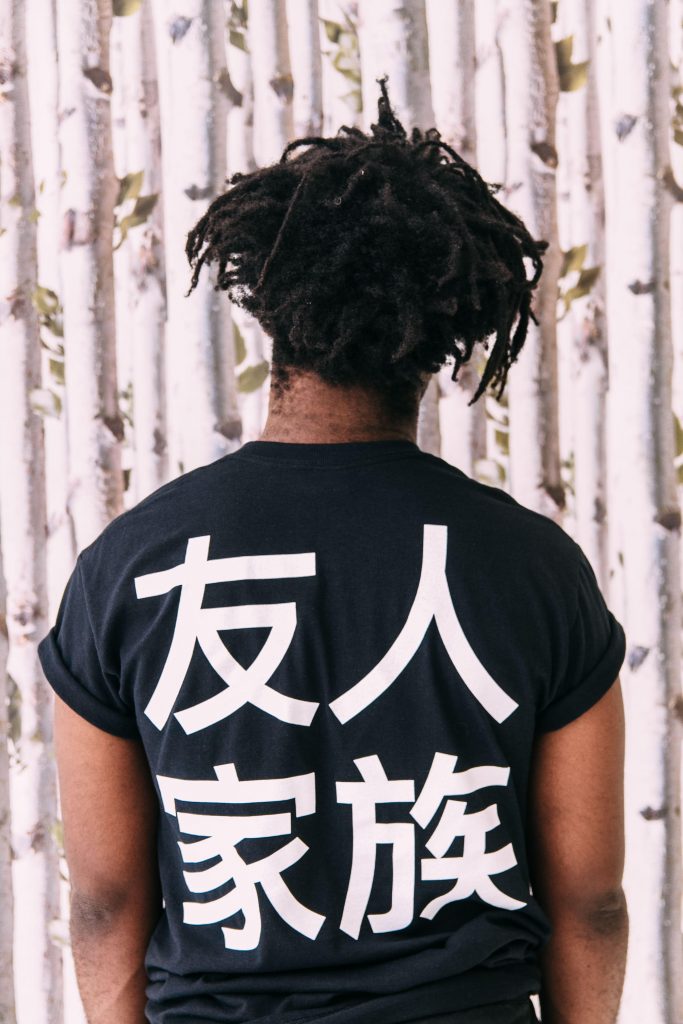
“There were a lot of weird, chance, serendipitous happenings, where I just happened to be in the right place at the right time or somebody saw something in me,” Williams tells me when discussing the move. “And now I’m here.”
Two of those somebodies were Martignago and Steve “Stevo” Robertson, Atlantic’s senior vice president of A&R. Williams, who at this point was a fledgling singer-songwriter with a couple of folk-tinged EPs to his name, played them some tracks that he’d made with producer J. Cruz. The plan was to pitch some songs for Atlantic R&B and pop artists—but Martignago and Robertson had other ideas.
“He was supposed to write for Jason Derulo,” Martignago remembers. “I had gotten a brief for that project, but instead of doing what the brief said, they did whatever they wanted—which is how Reggie likes to be generally.”
Upon hearing the songs, which included early versions of R.LUM.R tracks like “Be Honest,” “Nothing New,” and “Show Me,” Martignago turned to Robertson and said, “Am I crazy? Or does this not sound like anything on the label right now?”
Robertson agreed, and Williams was soon signed to Atlantic-affiliated indie label PRMD—as R.LUM.R, not Reggie Williams. Beyond the name change, it marked a huge change in direction for Williams, whose older material was more James Bay than James Blake.
“People get a sense of you or see you as one thing,” he says. “So when you trade and do a different thing or do a side project or something like that, you really have to be careful. Because truth be told, I wasn’t sure that people would even take this seriously.”
With that in mind, Williams approached recording “Frustrated” with a not-so-serious attitude. Written back in Orlando as a jazzy, vaguely George Benson-esque track, the song was one of three that Williams brought to his first session with local EDM artist Super Duper. He tracked the guitar and vocals in one take, told Super Duper what kind of synth waveforms he liked, and left. A few weeks later, he was sent a rough mix. That “rough mix” is now well on its way to fourteen million streams.
“I never thought this kind of thing was possible for a kid like me, some black kid from Bradenton,” he says. “Life’s crazy, bro.”
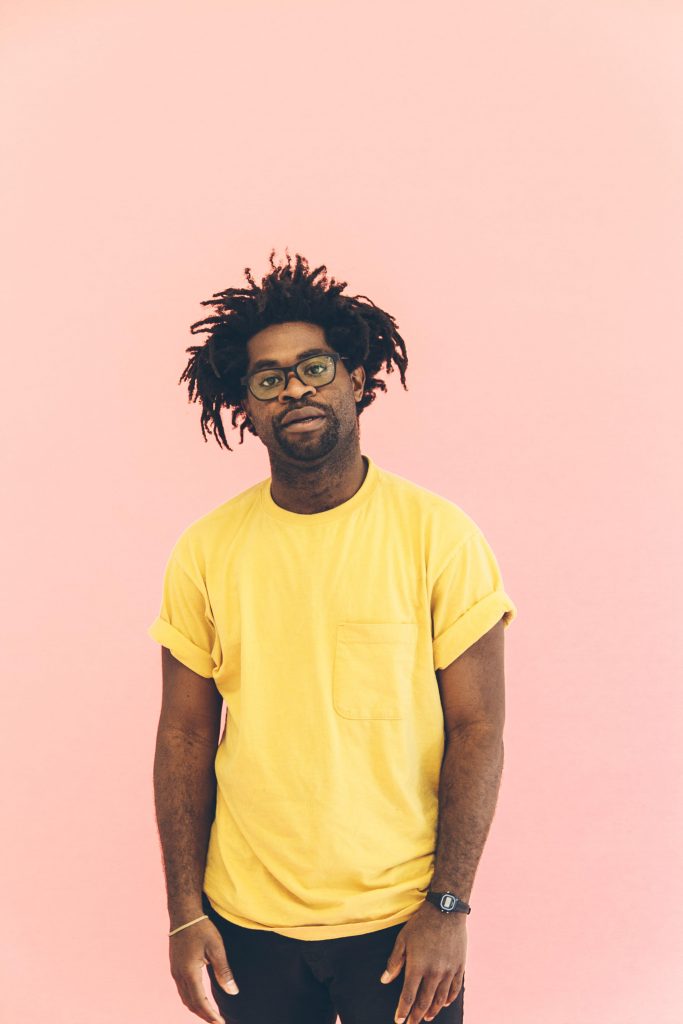
It’s standing room only at Mercy Lounge, and Williams is alone on stage, flanked by Kingsbury’s light rig. His band has left to let him play a mini set with nothing but his Stratocaster. There aren’t any LCD big screens playing NCAA games, but even if there were, I have a feeling the crowd would still be zoned in on R.LUM.R.
“A tornado flew around my room before you came,” he sings, launching into a slow-burning cover of Frank Ocean’s “Thinkin Bout You.” Almost on cue, the woos begin, the singalong starts, and the iPhones come out. The falsetto chorus—which Williams later tells me, “You either hit it or you don’t”—is hit, and then some. In an almost vulgar display of vocal power, he elongates the “ahead,” letting everyone in the room know that he, to quote George Jones again, can tear your heart out when he sings.
The band comes back onstage to loud, but not quite raucous, applause. Williams briefly thanks the crowd before launching into “Frustrated,” at which point motherfuckers do, in fact, lose their minds.
Looking out at Williams on stage—sweat dripping over his glasses and hair bouncing with the beat—I can’t help but think of that kid from Bradenton. The one that washed dishes to get a guitar and slept on couches and couldn’t get his hair to swoosh. I’m reminded of something he told me a few days before the show, back when the lights were still short-circuiting in the Donelson garage.
“In the music industry, and especially in the creative arts, we’re essentially asking a bunch of people who are dealing with varying levels of depression, anxiety, body image issues, gender issues, and identity things to codify it and give it to us in a way that we can understand. That’s fucking crazy! But some people are so motivated to do it . . . I feel like I have to do it.”
R.LUM.R is on tour now, and his debut EP will be out this summer.

